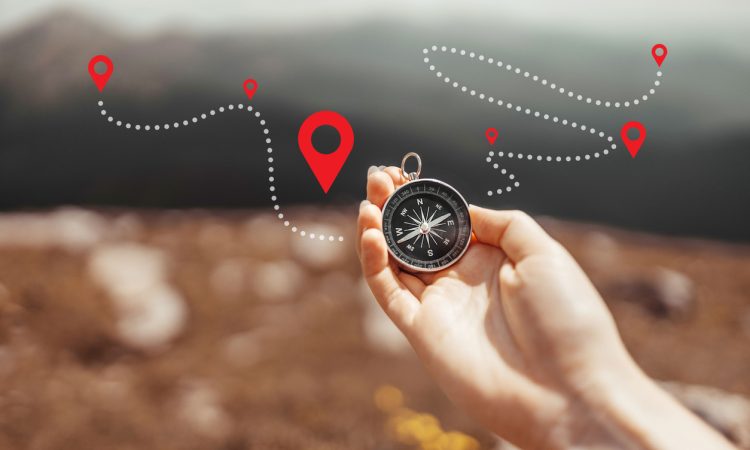“If only I could find my purpose, everything else would fall into place!”
How often have you heard this (or thought about it yourself)? It’s a common theme encountered by those working in the career development field and comes with the not-so-hidden-message that pursuing one’s purpose is the Holy Grail of life satisfaction. I have fallen into this trap myself: working in the field of psychology, facilitating self-development workshops and coaching clients over many years, I used to devote time and energy to help people focus on and identify their “purpose” as if this were a desert island treasure hunt.
After running seminars for a few years in the field of positive psychology, which explores the behaviour and mental attitudes designed to promote a long-lasting sense of well-being and life contentment, I began to have serious doubts about the idea of finding one’s life purpose. Indeed, I noticed that when I would raise the topic, some members of the audience would squirm with discomfort while others would noticeably check out, a blank expression washing over their faces.
Eventually, I started asking participants at these courses why talking about life purpose seemed like such a daunting prospect. The answer was always the same, and ran something along the lines of, “Getting through the day, the week or the month is enough of a challenge … I don’t have the time to think about this thing called ‘purpose’ and, besides, I wouldn’t even know where to begin.”
In time, I learned that the word purpose brought with it a heavy weight of responsibility for many. Much like the children’s story of The Emperor’s New Clothes, in which everybody pretended to see something that wasn’t actually there, it seemed to me that many people were striving desperately to find something profound yet elusive that they felt was expected – even required – to be a successful, happy, functioning adult.
Ironically, the reality was that, for many, the desperate attempts to figure out what their purpose was brought anything but a feeling of happiness or satisfaction. It frequently led people to feel as if they had failed at something society expected or required of them. Without this thing called purpose, they believed, they were destined to be lost, aimless, worthless.
And then one day, something simple and profound dawned on me after running a workshop on cultivating well-being. I had been exploring ideas about mindfulness, and how – by doing the smallest of things with the greatest of care – we can help to anchor ourselves in the richness of the present moment, and thereby reduce the tendency for mental chatter about the past or the future. While reflecting on (and learning from) past events can undoubtedly be very healthy, as is preparing adequately for what’s to come, it is certainly not beneficial to spend most (if not all) of our waking hours so lost in either the past or the present that we forget to notice what’s happening right now.
“Ironically, the reality was that, for many, the desperate attempts to figure out what their purpose was brought anything but a feeling of happiness or satisfaction.”
But what did this have to do with the idea of finding one’s purpose? Quite simply, the answer had been there all along: our purpose is to be as fully present, engaged in the fullness of each moment, as we possibly can. By doing so, we can experience a much greater sense of well-being and an enhanced sense of resilience. Sometimes it will be easy, other times immensely challenging. When reminiscing or planning it can become especially difficult to take note of what’s happening in your inner and outer environment right then and there. It takes commitment and vigilance; in many ways, it’s the ultimate full-time job. Of course, it’s more than just a job: it’s our purpose.
Everything else follows. If we focus on being mindful, being present, being engaged with how we feel, what we are thinking, how we are choosing to respond to every situation, then we are fulfilling our purpose. Our sense of ambition, our passion or preference for this activity or that pursuit, our clarity about goals worth pursuing or commitments to make – these all naturally emerge into plain sight when we are mentally clear and engaged with the here-and-now. Almost organically, we develop the motivation to pursue what matters to us because we have allowed ourselves to be still enough to listen and take note.
Having once assumed that ‘purpose’ was something so personal and individual, I came to the conclusion that, at the heart of it, we all ultimately share one common purpose: to be as engaged as fully as we can in this moment, to experience it, learn from it and know that it will never be repeated. When we have those glimpses of living our purpose – when we are mindful of what each moment brings – we find the gift of motivation to pursue our many and varied passions and goals.





